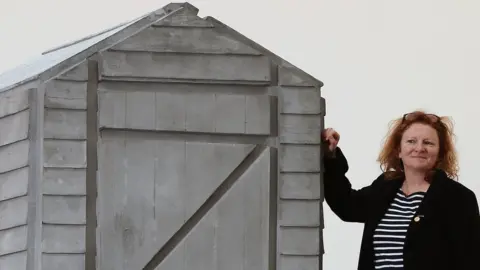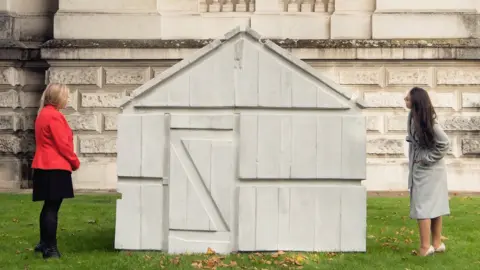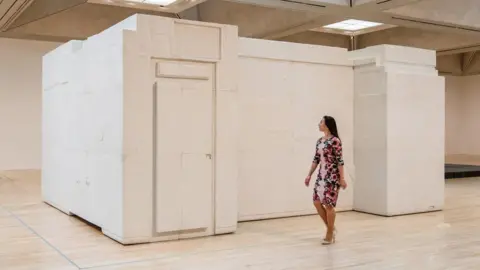Turner winner Rachel Whiteread has a pop at 'plop art'
 Getty Images
Getty ImagesArtist Rachel Whiteread has criticised what she calls "plop art" as an exhibition of her work opens in London.
"I'm not a great fan of what I call 'plop art', where you plop a piece of work down where it doesn't bear any relationship to anything else."
The Turner Prize's first female winner, known for sculptures that often take the form of casts, said public sculpture should suit its surroundings.
A retrospective of her work opens this week at Tate Britain.
Whiteread's previous commissions include her Fourth Plinth sculpture in Trafalgar Square - a sculpture resembling an upside-down plinth.
 Rachel Whiteread
Rachel WhitereadShe also created the Holocaust memorial in Vienna and an installation of 14,000 white polythene boxes for Tate Modern's Turbine Hall.
"Art has got extremely popular, and for many reasons that's great," she said. "But I think a lot of public sculpture is ill thought-out and put in places that it shouldn't necessarily be.
"It becomes something then that's invisible. People don't even notice it. Art is there for a reason and should be respected and looked at, and not just a sideshow."
Whiteread found fame for her first public commission in the East End of London in 1993, when she cast the interior of a house.
 Rachel Whiteread
Rachel WhitereadHer new sculpture - a cast of a Norfolk chicken shed - has now gone on display outside Tate Britain.
The retrospective includes many of her other casts, including hot water bottles, doors, a roof and a staircase.
Whiteread said she felt "slightly exasperated" by questions about whether the likes of a shed can be called art.
"I made House in 1993 so I've been coming across this for a long time," said the 54-year-old.
"I think if you keep plugging away and make good enough work, people will hopefully see there's some poetry in a shed."
The Rachel Whiteread retrospective opens on Tuesday and runs until 21 January at Tate Britain.

Follow us on Facebook, on Twitter @BBCNewsEnts, or on Instagram at bbcnewsents. If you have a story suggestion email [email protected].
